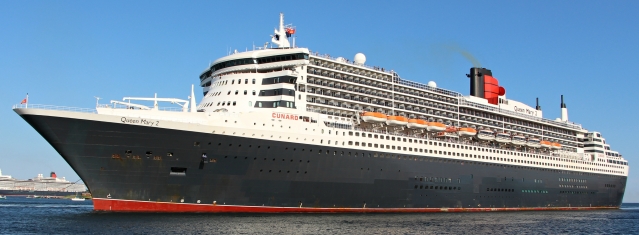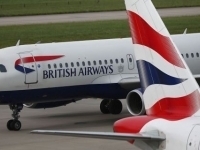Travel
Coronavirus Affects Travel
For Airline and Cruise Passengers

Queen Mary 2 (Source: Brian Teepell Photography)
USPA NEWS -
On January 30, 2020 the World Health Organization declared the Coronavirus crisis a global health emergency. There have already been at least 562 deaths and the total number of cases is more than 27,000.
Though the virus originated in Wuhan, China there have now been more than 100 reported cases in 20 other countries.
The World Health Organization Director, Tedros Ghebreyesu, said in a statement, “Let me be clear, this declaration is not a vote of no confidence in China. Our greatest concern is the potential for the virus to spread to countries with weaker health systems.“
Though the virus originated in Wuhan, China there have now been more than 100 reported cases in 20 other countries.
The World Health Organization Director, Tedros Ghebreyesu, said in a statement, “Let me be clear, this declaration is not a vote of no confidence in China. Our greatest concern is the potential for the virus to spread to countries with weaker health systems.“
Even though the World Health Organization stopped short of recommending travel restrictions many Airlines and Cruise Lines have taken precautionary steps in efforts to reduce the spreading of the virus. For example, Air Canada has cancelled all flights to Beijing and Shanghai at least until the end of February. Air Canada has released the following statement, "Air Canada's last flights departing Canada will operate today and the return flights will operate from Beijing and Shanghai tomorrow, January 30, 2020," the airline said. "Affected customers will be notified and offered options, including travel on other carriers where available, or a full refund. Air Canada regrets this situation and apologizes for the serious disruption to our customers' travel plans." Air Canada is not the only airline to take such steps. British Airways, earlier in the week, suspended all direct flights to and from mainland China until the end of February. British Airways has issued the following statement, "We apologize to customers for the inconvenience, but the safety of our customers and crew is always our priority," the airline said in a statement on Wednesday. "Customers due to travel to or from China in the coming days can find more information on BA.com."
With many other airlines taking action, it is recommended that customers with scheduled travel to the affected region should contact their airline to confirm status of any existing flight reservations.
The airline industry is not alone in dealing with the Coronavirus crisis. Five cruise lines including Carnival, Royal Caribbean and Cunard Line have cancelled scheduled cruises or changed scheduled calls to China.
On January 30th, a Costa Cruise Line ship with 7,000 passengers and crew onboard was held at the Port of Civitavecchia near Rome while two passengers from Hong Kong tested for the Coronavirus after displaying fever symptoms. The two passengers are being held in the hospital area of the ship until they receive a negative result on the test for the virus.
The entire ship had been in lock down for most of the day as passengers waited for the initial results of tests carried out by a medical team from Rome's Lazzaro Spallanzani National Institute for Infectious Diseases. The results were deemed as the common flu and the lock down was lifted.
Cunard Line has made the decision to change a scheduled call for the Queen Mary 2 from Hong Kong to Singapore.
"We have made the decision to cancel Queen Mary 2's call to Hong Kong on February 18/19 and replace it with Singapore on the same dates. We will continue to monitor the situation for future Cunard calls to Shanghai and Hong Kong and amend itineraries as necessary," a company spokesperson said in a statement.
"Any guests now joining or leaving Queen Mary 2 in Singapore will be contacted and will be supported with amending travel arrangements. Although the risk to our guests and crew is very low, we are closely monitoring the situation. Our medical experts are coordinating closely with the U.S. Center for Disease Control and Prevention (CDC) and the World Health Organization (WHO) to implement control measures for our ships."
Anyone who has a planned cruise to or from areas affected by the Coronavirus should contact their cruise line for the latest information.
Liability for this article lies with the author, who also holds the copyright. Editorial content from USPA may be quoted on other websites as long as the quote comprises no more than 5% of the entire text, is marked as such and the source is named (via hyperlink).






